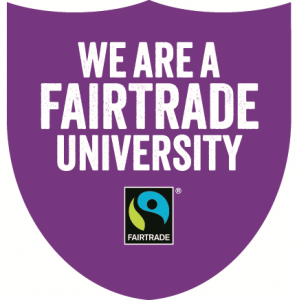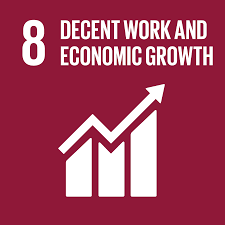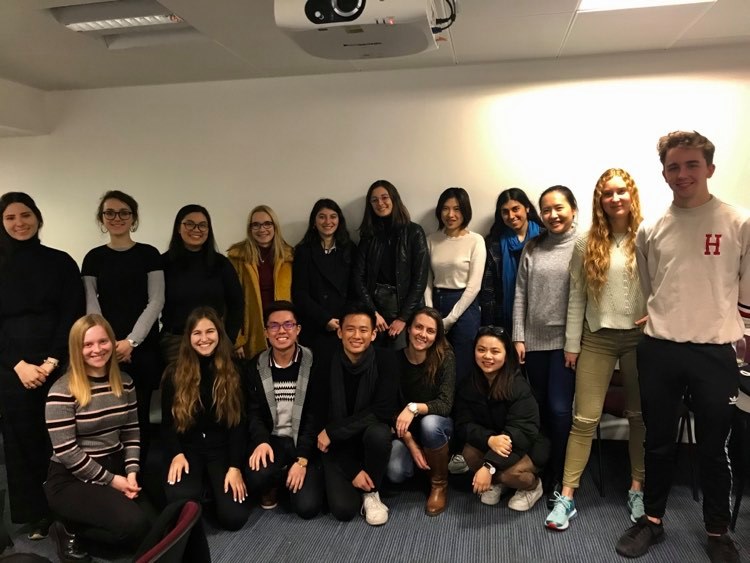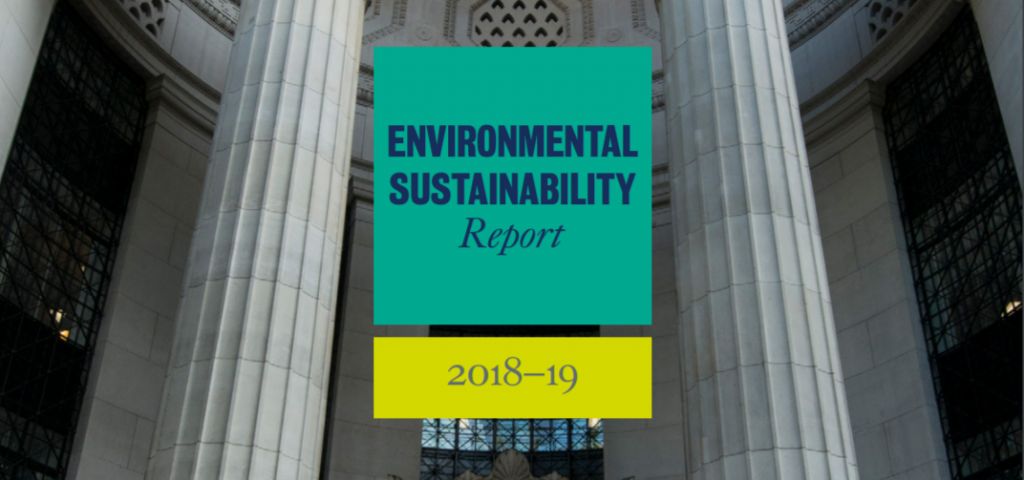King’s has been an accredited Fairtrade University since 2017, when we re-certified after a few years of not taking part in the scheme. As part of the Fairtrade University scheme, we passed a new Fairtrade policy (as well as a Sustainable Food one), and set up our Fairtrade and Sustainable Food Steering Group. Many sustainability initiatives around food were first discussed in this Steering Group, and the Fairtrade University award pushed us to look at how we could improve further.
So when the Fairtrade Foundation and NUS teamed up to revamp the award scheme and run it jointly, we signed up to be in their 2018-20 cohort.
The new scheme asked us to go beyond the five commitments outlined in the original programme, and focus on five areas of action:
- Leadership and Strategy, including having policies and statements on supporting Fairtrade
- Campaigning and Influencing, including supporting campaigns like Fairtrade Fortnight, and running an innovative campaign each year
- Procurement, Retail & Catering, including offering Fairtrade in a wide variety of categories
- Research and Curriculum, including offering student dissertation topics on Fairtrade topics
- Outcomes, including measuring our impact
It also required us to create a Fairtrade Action Plan, which is available on the King’s website here.
As part of the new Fairtrade University scheme, we made lots of improvements over the last two years. All coffee and tea served by King’s Food was already Fairtrade-certified, and in the case of coffee, also organic and Rainforest Alliance-certified. But when it comes to other products, King’s Food have increased the amount of Fairtrade ranges they sell. For example, orange juice sold by King’s Food is now Fairtrade-certified. While they have previously sold Fairtrade snacks like brownies and cookies, many of the cakes you find in King’s Food cafés are made on site by chefs now. Since last year, Fairtrade cocoa is being used to make these treats. During Fairtrade Fortnight, they also introduced Tony’s Chocolonely chocolate at their outlets, with the team from Tony’s coming along to hand out samples. The Fairtrade University Award is a joint programme between King’s and KCLSU, so KCLSU have also made improvements to their sourcing. The drawstring bags on sale at Nought are made from Fairtrade cotton, and KCLSU even serve Fairtrade rum at some venues.

We have also started including questions about Fairtrade and Sustainable Food in our induction survey in King’s Residences, results of which you can find on our Fairtrade page. In addition, we welcome students doing dissertations on Fairtrade and ethical trade issues at King’s, and are happy to support students wishing to carry out research on this with access to data. We also supported staff member Rebecca Brown in setting up the Universities Against Modern Slavery Alliance (UAMSA), a new association between universities which aims to bring the issue of sustainability and labour exploitation in supply chains into the public conscious. In March 2019, King’s hosted the inaugural UAMSA conference, which was a great success. You can read more about UAMSA in this blog post by a student volunteer who helped organise the conference.
Previously, the Fairtrade Foundation audited the universities – but under the new scheme, students are trained by the NUS to become auditors. Four King’s students were chosen to audit King’s this year, and in late May, carried out an audit of King’s by interviewing members of the Sustainability and King’s Food teams. We are now awaiting their final report, and are looking forward to hearing how we have done!
Many of our initiatives around Fairtrade and sustainable food, including sourcing of new products, our coffee cup levy and donation of leftover packaged food were discussed in our Fairtrade and Sustainable Food Steering Group over the last couple of years. The group is attended by the Sustainability team, King’s Food and KCLSU, as well as any interested students and staff members. There is an open invitation to join the group meetings, which take place every three months. To get an invite to the next meeting (likely to take place online at the end of July), email sustainability@kcl.ac.uk





